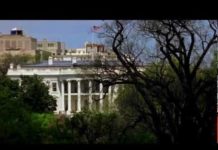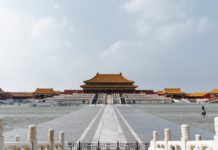He then talked about America’s strength, days after exchanging threatening tweets with his North Korean counterpart about the size of their respective nuclear buttons. He also singled out China as America’s main adversary, instead of welcoming it to the global community of nations. Overall he painted a very rosy picture about America, one in which unemployment is a relic of the past and where Americans will rebuild a dilapidated infrastructure with American money, American hands and American sweat. And where America deserves better from its allies who, he claims, have long taken advantage of the US’s predisposition to lead internationally.
But when the President of the United States talks so much about internal union and external strength, without backing it up with convincing strategies and implementation policies, he is, without realising it, projecting an image of a weak America. There is something about nations who have become unsure about their place in the world that makes them want to shout that they are united, strong and confident about their destiny. They need to say it, to shout out loud as if needing to reassure themselves. This is problematic, because American people and other nations are listening and taking note. And what they hear does not match what they perceive. The reality is that domestically, the US faces a state of disunion, while abroad the US seems to have resigned from its long-standing leadership role.
Both are equally concerning and interlinked but in this entry we focus on the foreign dimension of Trump’s Presidency, for it is this that has more serious ramifications for the future of the international liberal order that the US has pursued and led since WWII. For decades, a confident and strong America has led the world with a smart combination of hard and soft power. During this time there have been successes and failures, but one could argue that the net effect on America’s allies and the world at large has been a positive one.
As a result, other nations were reassured and ready to follow the leader, while adversaries like China opted to play by the rules of the game rather than seek to overturn them completely. America was thus able to take others on the same journey. But when those nations listen to President Trump today, or watch his actions including the withdrawal of the Paris Agreement or the abandonment of the arms control agenda, they question the US’s true commitment to leadership, and worse, the US’s ability to continue to lead.
Take Trump’s Nuclear Posture Review published only two weeks after his State of the Union speech. This is a document that indicates the US posture towards the possession and use of nuclear weapons. It is therefore a public statement of intentions sanctioned by the President himself. For decades US presidents have successively introduced or adopted slightly different approaches to the nuclear question, but President Trump’s document marks a complete departure from his predecessors, including President Bush junior.




























